QuestionHi Jan,
Max is a 4 year old yellow crowned amazon that I've had since he was weaned from hand feeding. When I first brought Max home there were 2 springer spaniels in the house. He seemed to like the older one and delighted in frightening the younger one. He was happy to step up, talk, sing and be a happy, active bird. Gained a huge vocabulary. Two years ago the older dog died and this summer I got a field spaniel puppy. Max seemed to be VERY curious about the puppy and flew on to his crate to check him out and sometimes flew down on the floor to strut around the puppy. When the puppy barked or whinned, Max needed to be louder. When both dogs bark now, Max starts screaming and then makes a dreadful, high-pitched call that would scare off any potential predator.
He has enjoyed being free to explore all sides of his cage and play perch for a couple of years now. He is only truely confined to his large cage on rare occasions that I'm out of town or when strangers some in to do things like plumbing work. Since I haven't had his wings trimmed in over a year, he really enjoys flying about freely and following me everywhere before perching on my shoulder. He was well on his way to being poop trained.
Max has always been a one person parrot and I was clearly his person. But a new puppy in the house gets quite a lot of attention and I no longer believe that this is going to be a match made in heaven. Fascinated as he was about the new puppy, the puppy started to get a little bolder and more comfortable around the house. When the puppy reached his 4th month of life, he tried stepping on Max's tail and running after him when he flew down near him. One day, Max was not quick enough and the puppy caught him by his wing, but quickly let him go. It was about that time that Max started to bite ME! It was not the kind of bite where he tries to warn me of an oncoming threat, it was deliberate and angry. He would fly on to my arm or shoulder and then take a chunk out of me ... all the while saying "no bites!" It is very hard not to react reflexively, especially when he flys onto my shoulder and bites the back on my neck several times in a row. I have been telling him "bad bird" and locking him inside his cage immediately after he bites me, but as soon as I let him out after several hours have passed, the whole cycle starts again. I am now terrified when he flies toward me because I know I'm going to get nailed hard. He just refuses to let me handle him, to let me help him preen, to take treats from me -- I have become him #1 enemy and this is so sad for me. I absolutely love this bird and at the same time am starting to hate him and, worse, be fearful of him. Any advice would be appreciated.
P.S. I grew up in Atlanta but moved north in 1971. Never even saw a bird close up until 2000.
AnswerHi Caroline,
Wonderful to hear from someone who is obvisouly as enamored of companion animals as I am but sorry to hear you are having a problem like this. In my opinion you have several things going on here that have led to the biting and attacks. I hope to be able to help.
First of all, with Amazons there are frequently aggression problems that pop up anywhere from age 2-5, especially with male birds. This is the age at which they become sexually mature and are feeling full of themselves. Your bird sounds to have come in to this age and unfortunately, at the same time he was allowed to gain more of a feeling of dominance and maturity because he was no longer getting wing trims. So combine the hormone overloaded "machismo" of a newly sexually mature young male, with nearly complete freedom, who also has been given the highest perch in the house (your shoulder) therefore assuming the role of house leader, and you see what a mess you have. Now let's see if we can help you get things back to more normal.
Start with a wing trim. I do not believe in leaving birds fully flighted. I have personally seen too many accidents and too many accidental escapes when birds were left to fly loose in the home and I have heard of even more. A flighted bird is also given a step up in authority because he can go where he pleases without you, can come and go as he wants, and does not have to deal with you if he doesn't feel like doing so at any given moment. He is also free to launch aerial attacks if he so chooses. Consider that these birds in the wild would have more opportunities to expend energy and lots of time for roughhousing with flock members of similar age and strength. Even handfed birds are still not far removed from the instincts and behaviors of their wild cousins which is part of what makes living with them both wonderful and challenging. By trimming his wings he is going to have to depend on you for "transportation" and he will be unable to fly at you which I am sure causes a reaction that makes him think it is even more fun.
Next, do not allow him to sit on your shoulder. By doing so you are giving him the position of dominance over you because he is "higher" than you are. You also put yourself at risk of serious facial injury by allowing birds on your shoulder. My Macaw, Polo, is allowed on my shoulder only on occasion and really only because he was 12 years old when I got him and had apparently always been allowed to shoulder sit. My own Amazon, 10 yr old Kelli, is only allowed on my shoulder for a rare picture taking session now and then. Otherwise she knows she is to stay on my hand or forearm. BY doing this I have been able to mostly protect myself from "Amazon overload syndrome". This is when you see an Amazon start flashing their pupils, spreading feathers, and strutting. That appearance is ALWAYS a sign in Amazons to keep all body parts away. Like your bird when she is in one of those excited moods she will usually keep saying "don't bite your" (she never adds the word mama at the end). When I see and hear all that, I stay away and wait for her to calm down. So get the wings trimmed and move this bird down in to a position where he is not feeling dominant. I would even check his playstand and make sure that when he is perched on it, he is below your eye level. That way YOU remain top bird.
Next, I would start confining him to his cage at night or during times when you can not supervise him. Make sure he has lots of interesting toys and treats to entertain him. When he does come out, try playing quiet games with him or offering him his very favorite treat. Take him on tours of the rest of the house with you while you go about your day but since you said he gets aggressive after a few hours, make sure he is either on his playgym or in his cage before he gets to that point. Again, you remain in the dominant position this way. Make sure you reward and praise him for good behavior and totally ignore bad behavior. The more you yell when he is bad, the more you are actually rewarding him because you are providing him with drama.
Finally, I think you are going to see some jealousy issues even with all this. I never had a problem with Polo biting me (though he would anyone else) until we got my dog a few years ago. The birds still got plenty of attention but naturally so did the puppy and Polo has been resentful of that. I have learned to keep the two seperate and that way Polo does not have to feel so jealous.
I hope all this will reestablish your relationship with this bird. It is going to take some time and commitment on your part plus a lot of patience but if you can hang in there it will be worth it. So many Amazons get "dumped" in one way or another when they reach sexual maturity and it is such a shame. I might also suggest that you subscribe to a wonderful magazine called "The Companion Parrot Quarterly". It is the one magazine written by the top behavioral experts that I beleive everyone should have. It's not available retail so you will need to look it up to subscribe.
Best of luck to you. It sounds as if you are a great bird companion so I hope you will not give up.
Jan

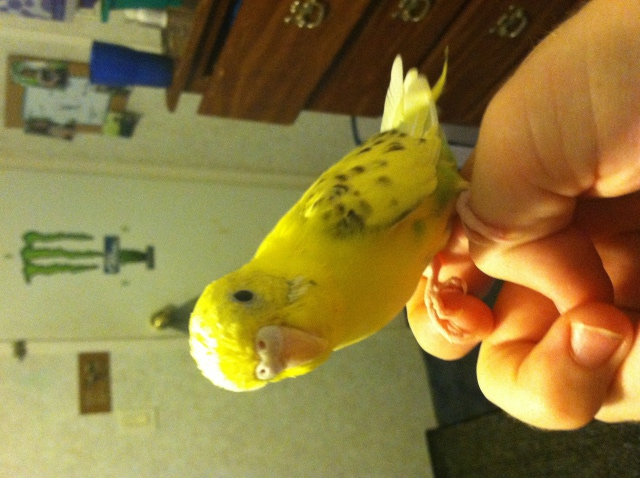 Parakeet gender
Question
Parakeet
Hi, I looked for an expert und
Parakeet gender
Question
Parakeet
Hi, I looked for an expert und
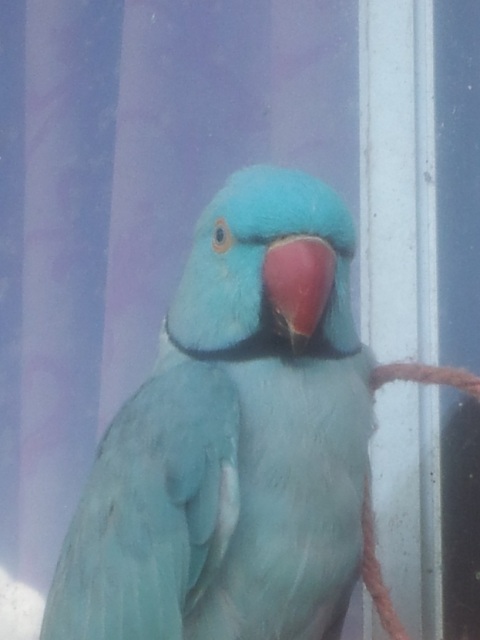 RE: Indian Ringneck probems
Question
Indy our Ringneck
Thank you for your he
RE: Indian Ringneck probems
Question
Indy our Ringneck
Thank you for your he
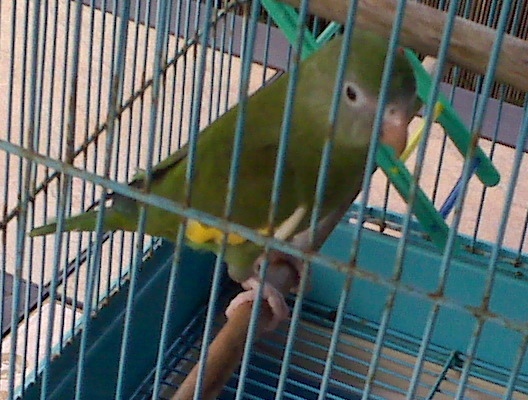 What type of parrot is this?
Question
Friendly bird
A week ago ths small parrot flew
What type of parrot is this?
Question
Friendly bird
A week ago ths small parrot flew
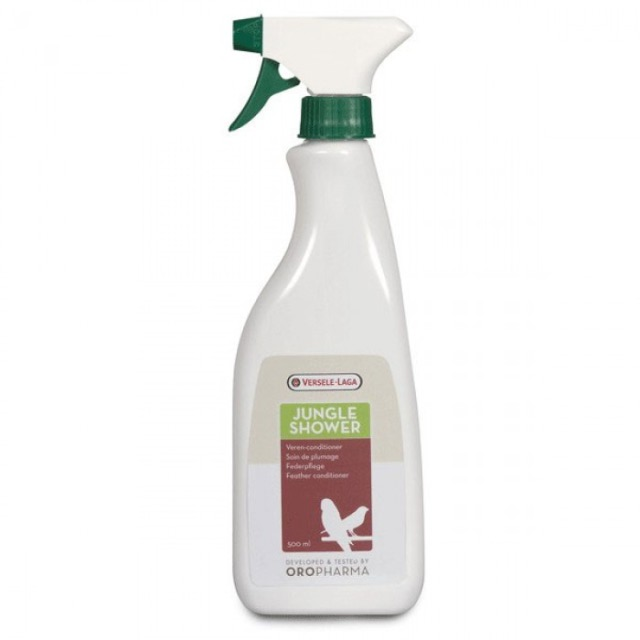 Indian Ringneck Health Issue
QuestionI have an Indian Ringneck who had been neglecte
Indian Ringneck Health Issue
QuestionI have an Indian Ringneck who had been neglecte
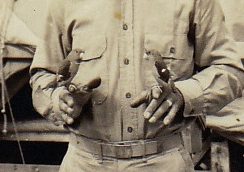 ID Birds
Question
Panama Birds
My uncle served in Panama in 1941
ID Birds
Question
Panama Birds
My uncle served in Panama in 1941